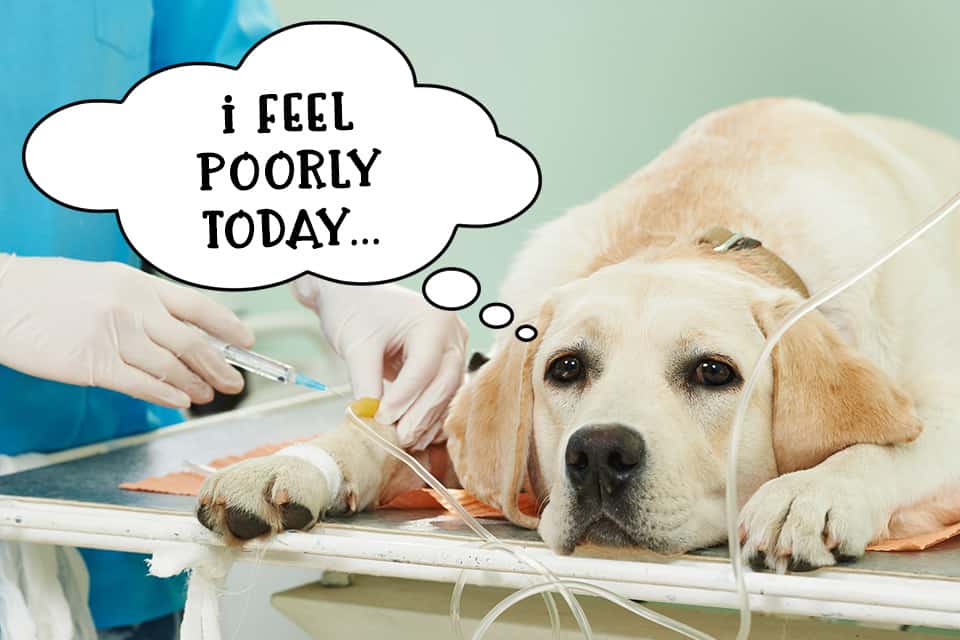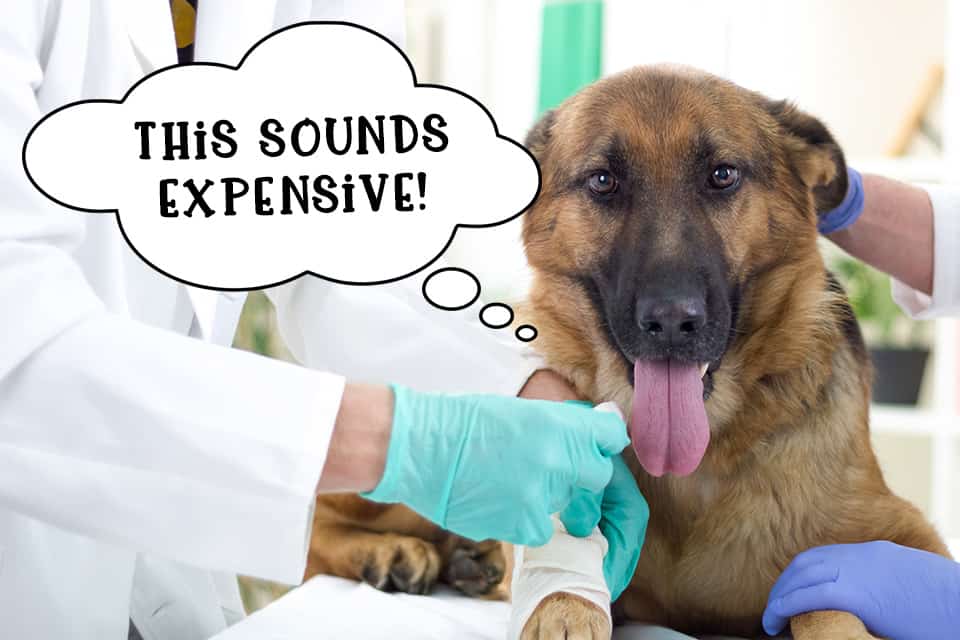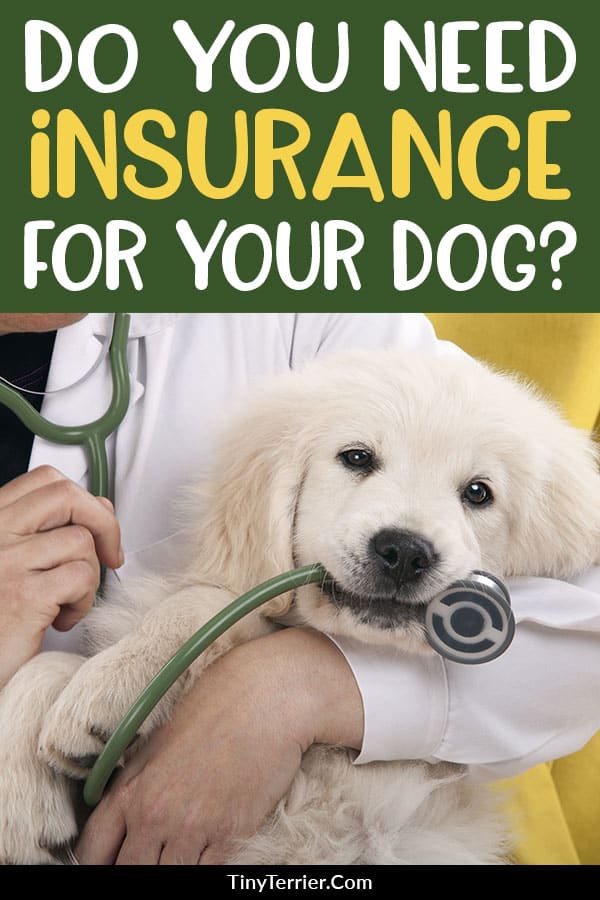Should you Buy Pet Insurance for your Dog?

Published on January 7th, 2020
One of the questions that new dog owners often ask themselves is “Should I buy pet insurance for my dog?”
Having some sort of buffer of money to cover your pet’s healthcare is really important and it helps make you a more responsible pet owner.
That may come in the form of pet insurance, or perhaps a separate bank account where you put money each month to save for emergencies.

What is pet insurance?
Pet insurance is just like taking out insurance on your home, car or mobile device: it’s to recover your costs in case of emergencies.
If your dog needs healthcare treatment, then the pet insurance should cover the financial aspect so that you do not have to pay it yourself.
Veterinary procedures and ongoing treatments for pets can be incredibly expensive and run in to thousands of pounds or dollars.
Having pet insurance is a great way to make sure you can afford treatment should the worst happen.
Most dog insurance companies operate a monthly payment procedure where you pay each month towards your premium.

How much does pet insurance cost for dogs?
The amount you will pay for dog insurance will vary based on many factors, including the level of care you opt for, the breed of your dog, their age and if they have any pre-existing conditions.
Your premiums may rise following a claim, and they are also likely to rise each year as your pet ages.
A typical cost can be expected to be around £30-£50 per month, per dog.

Does pet insurance cover everything?
Simple answer – nope!
When signing up to pet insurance you must read the terms and conditions carefully, particular the parts where they talk about exemptions.
Dog insurance does not usually cover costs such as neutering your pet, yearly vaccinations, flea and worm treatments and initial veterinary consultations.
Depending on the breed of your dog, there may also be breed-specific exemptions for conditions that your dog may be pre-disposed to.
There will also probably be a clause in there about pre-existing conditions that state that the insurance will not cover treatment towards a condition that they dog has before you sign up to the insurance.

What are the alternatives to pet insurance?
I have two shih tzus and paid pet insurance for about 2 years before I realised that there was probably a better way to prepare for medical emergencies.
As I had never claimed for my dogs, I felt like I had essentially ‘wasted’ all those months of paying expensive insurance premiums.
I decided to change tact and set up a new bank account just for emergencies.
I cancelled the pet insurance and instead started to transfer the same amount each month that I was previously paying to that new bank account instead.
Now, several years on, I have a good ‘emergency fund’ which should be enough to cover any treatment that my dogs may need.
Of course, this is a risky option in the beginning, particularly if you don’t have any other savings that you could fall back on if needed.
What if something serious had happened to my dogs just after I cancelled the insurance, before I built up my savings?
Thankfully nothing bad happened, but this is definitely an eventuality you should be prepared for if you decide to switch to savings-based ‘insurance’ rather than paying for ‘real’ pet insurance.

Third party liability insurance for dog owners
If you don’t choose to pay for pet insurance, then something to consider is getting third party liability insurance.
This covers you for if your dog causes injury to another dog or a person.
Legal fees can mount up incredibly quickly if you get taken to court over your dog’s actions, so having this insurance would certainly help you out if you dog into that situation.
Third party liability insurance is very affordable.
If you are in the UK, the Blue Cross charity offer it for just £25 a year.
This covers you for up to £1,000,000 per claim if your dog causes damage to another animal, person or property.

Do you need dog insurance?
None of us want to think about something terrible happening to our pet, but it is something we should be prepared for, nonetheless.
Whether you choose to sign up for pet insurance or save money yourself is entirely up to you, but you should certainly have some sort of plan in place in case your dog needs expensive or ongoing treatment.





